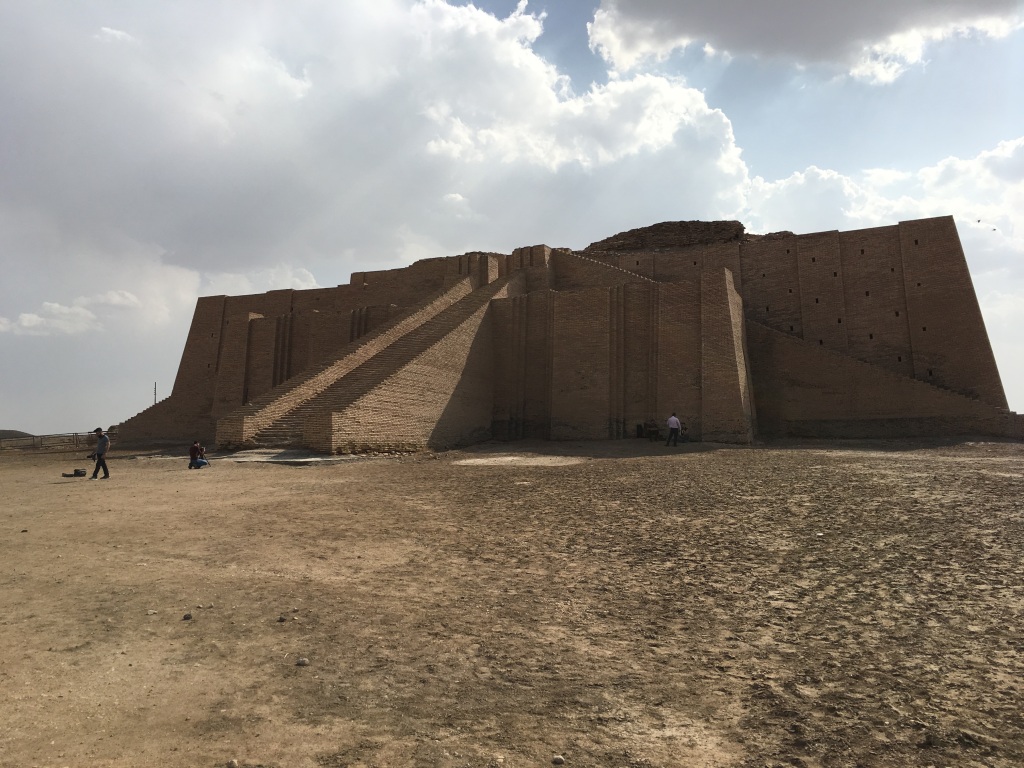Part of the reason we miss the significance of the Tower of Babel is because we have a strange conception of what the Tower of Babel looked like. Often times we imagine a building stretching high into the clouds, especially since it’s described as “a tower with its top in the heavens” (Ge 11:4). But this expression is not meant to denote the tower’s height, so much as its purpose; for “Throughout Mesopotamian literature, almost every occurrence of the expression describing a building ‘with its head in the heavens’ refers to a temple with a ziggurat.” (Walton, John H., Ancient Near Eastern Thought and the Old Testament. Ch 5, “Comparitive Exploration: Tower of Babel,” ¶ 4.)
The ancients designed these ziggurats to be stairways or ramps from the heavens for their gods to descend to earth and meet with humanity. A small room was often prepared at the top of these towers for the deity to make a home in. If these gods were willing, humanity hoped they might follow the stairs down into the temple to be with them.
While the Bible doesn’t mention a temple alongside the Tower of Babel, it does mention that they built both a city and a tower. Given the timeframe in which we place this event, we recognize that cities were not yet looked at as a place for people to live in. Homes would have been outside of the city and public buildings would have been inside. With this in mind, Walton imagines the city as “a temple complex featuring a ziggurat, which was designed to make it convenient for the god to come down to his temple, bless his people, and receive their worship.” (Ibid. ¶ 5.)
We can now begin to see more clearly why God was upset with the creation of the Tower of Babel. He wasn’t upset because people had built a big building—He was upset because humanity still wasn’t listening.
God had endured a lot of human stubbornness in the 10 chapters leading up to the Tower of Babel. Humanity had been banned from God’s sacred space of Eden; humans had become riddled with sin; within one generation of humanity there had been a murder; and the sons of God had bred with humans and brought incredible evil into the earth through the Nephilim (Genesis 6:1-4).
In light of all this, God “regretted that he had made man on the earth” (Gen 6:6) and so He flooded the earth and started over with Noah and his family. The earth had now been baptized and Noah was told to carry out the original Edenic plan: “Be fruitful and multiply and fill the earth” (Gen 9:1). But instead of listening to God and filling the earth with His image, humanity instead stayed put and built a house for God to live in so that they could “make a name” (Gen 11:4) for themselves. They tried to force God to fit into their own ideals rather than follow His ideals. With all of this in mind, we read God’s judgment on these people a little differently.
Want to continue the conversation? Take the long journey with my book/audiobook, The Rush and the Rest, or take a shorter path with my condensed version, Fantasy IRL.


Leave a comment